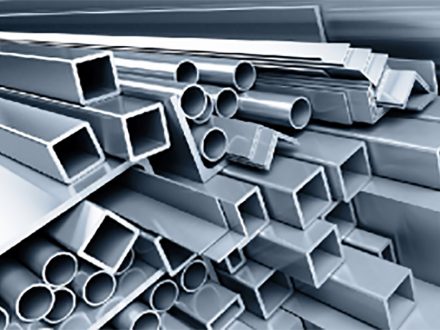Contractors carrying out “big, steel-intensive projects” should have to report where their steel is produced, a senior director at UK Steel has said.
Currently there is no requirement for major publicly funded project clients to report where they are sourcing their steel from.
But adding such a requirement to procurement legislation would bring “multiple benefits” to the construction sector, UK Steel head of policy and external affairs Richard Warren told Construction News.
“It would boost the UK job market, and help us push towards our environmental and net-zero goals,” he said. “We hope that by mandating the reporting, some people will think about using British steel more in public contracts.”
He also said the requirement could bring safety benefits, as knowing where products are from makes them easier to trace.
The proposed requirement would only be for steel used on projects of a certain size, as outlined in a report on steel procurement published by UK Steel last week. It recommended introducing “a limit (either by value, weight, or a combination)”, which, if exceeded, would mean the origin of steel be reported on a mandatory basis.
“If there’s a small upgrade which uses 50 tonnes of steel, it’s not really practical or efficient to look at how much steel is being used on the project,” Warren added. “We need to look at big, steel-intensive projects.”
The government will consider the proposal over the coming months. Warren said UK Steel hopes the requirement will be introduced into public procurement regulations by September.
At the moment, the Department for Business, Energy and Industrial Strategy (BEIS) consults government departments about where its steel comes from years after it has been procured, in an effort to build up a data picture of the situation. But as businesses are not required to record where their steel is from, this does not always produce a result, Warren said.
“They’re doing it years after the event. They have to look at all their projects and say: ‘You know that steel that you bought two years ago, where did you get it from?’
“That sort of information has likely already been lost to the sands of time,” he added.
Warren’s call to parliament comes after HS2 Ltd was criticised for sourcing a quantity of steel from French fabricator Sendin last year, rather than using steel developed in the UK. The megaproject said there was a lack of suitable UK suppliers at the time who could provide the material.
But UK steel suppliers said that there had not been enough forward planning, and they could have supplied HS2 with enough steel if it had been given prior warning of the amount of steel which was required.
There are still a few things to be considered by government, UK Steel and the construction industry in the coming months, aside from the size of the projects on which the origin of steel products should be reported. One of the big questions is what constitutes steel produced in the UK.
“In our view, its needs to be produced, so started and finished in the UK,” Warren said. “But what about products where the basic steel is made in other countries, then imported and rolled in UK? There is a complication there.”
He said construction companies who had already been consulted were keen on the plan, as long as they get prior notice before the new rules come into effect.
The current proposals would not affect projects such as the big energy developments at Hinkley Point C or Sizewell C, as those are technically both private projects. But Warren said the next stage would be for those projects to be subjected to similar rules.
“There’s a lot of steel being used [on projects like Hinkley Point], and a lot of value which could be lost by not using British steel,” he added.
Business secretary Kwasi Kwarteng said: “Steel is a national strategic industry and we want to see the sector continue to win business both domestically and internationally over the long-term as it transitions to a low carbon future in a way that supports competitiveness, jobs and clean growth.”


